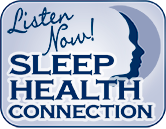The latest studies, published August 11, 2011 by the Journal of American Medical Association, have found that older women with sleep apnea are twice as likely to develop dementia than those without sleep apnea.
“This is the first study to show that sleep apnea MAY lead to cognitive impairment,” study leader Dr. Kristine Yaffe, professor of psychiatry, neurology and epidemiology at the University of California at San Francisco, said in a written statement. “It suggests that there is a biological connection between sleep and cognition.” retrieved 8/18/11: http://www.cbsnews.com/8301-504763_162-20090746-10391704.html
298 women, over the age of 65, made up the group that participated in the study. None of these women had suffered from dementia in the 5 years previous to the study. The study found 32.5% suffered from dementia or mild cognitive impairment, half of these women had untreated sleep apnea. The study suggested treatment for sleep apnea could prevent or help prevent the onset of dementia.
Obstructive sleep apnea is a life threatening and life altering condition that causes a person to stop breathing repeatedly during sleep. The oxygen deprivation that results can trigger severe health problems. The restless sleep that also results from OSA affects the quality of life of individuals. The bed partner’s sleep can also be disrupted by his or her partner’s snoring, pauses in breathing and restless sleep.
What happens during a sleep apnea event?
- The muscles in the throat relax and the tongue is sucked against the throat blocking the airway.
- The entire upper airway is blocked causing air flow to stop.
- Air (and oxygen) cannot flow into the lungs.
- When the oxygen level in the brain becomes low enough, the sleeper partially awakens, the obstruction in the throat clears, and the flow of air starts again – usually with a loud gasp or snort.
- People with untreated apnea are generally not aware of the awakenings but only of being sleepy during the day.
- Loud snoring, mixed with periods of silence (apnea), is typical but is not always present, especially in children.
How can you treat sleep apnea?
The specific therapy selected for an individual with Obstructive Sleep Apnea (OSA) is based on the patient’s medical history, physical examination, and the results of the polysomnography. Multiple treatments are available for OSA including, but not limited to :
- Behavioral modifications (see below)
- CPAP
- Oral appliance therapy
- Surgery
- Pharmacological treatment – currently marginally effective
In many cases, Oral Appliance Therapy is the best option for treatment of obstructive sleep apnea. To find out more about Oral Appliance Therapy, and how Dental Sleep and TMD Center of Illinois can treat your sleep apnea, please visit our website: TiredofSnoring.com
Referenced Articles:







(630) 369-5508